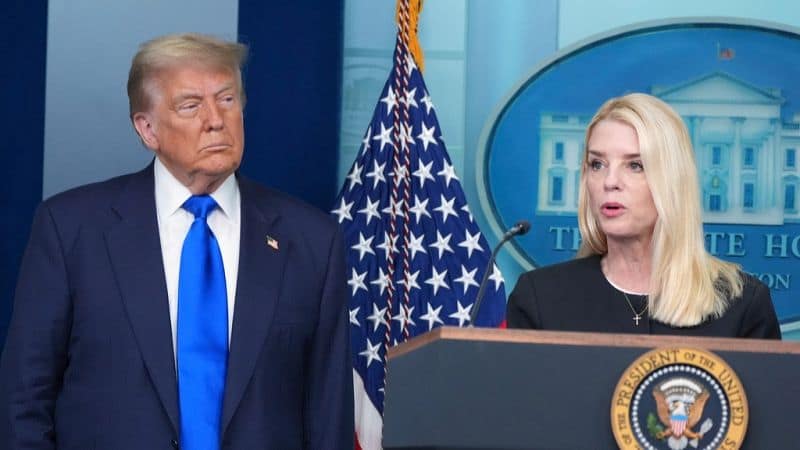The Legal Battle Over Jeffrey Epstein’s Case
The US Justice Department has taken a significant step in the ongoing legal saga surrounding disgraced financier Jeffrey Epstein. It has requested a federal court to unseal secret documents related to his case, specifically grand jury transcripts. This move comes as part of an effort to bring more transparency to the matter, which has long been shrouded in mystery and speculation.
The Trump administration made this request late on Friday, emphasizing the importance of making these transcripts public. Grand jury proceedings are typically confidential to protect the reputations of individuals who may not be charged and to encourage witnesses to come forward without fear of retaliation. However, the Justice Department is now seeking to change that, arguing that the transcripts could provide valuable insight into the case.
Despite this request, the Justice Department has stated that it will not release the thousands of pages of documents it currently holds. These documents do not require any formal approval or process to be made public, yet they remain sealed. This decision has raised questions about why the administration is only focusing on the grand jury transcripts rather than the broader collection of evidence.
Grand jury transcripts are rare in their release, as courts usually only make them available if they are needed for a judicial proceeding. Even with the Justice Department’s endorsement, it may take weeks or months of legal negotiations to determine what can be released and how to protect sensitive information, including details about victims.
It is also unlikely that these transcripts will reveal any shocking new information that would satisfy conspiracy theorists who have long been fixated on the Epstein case. The real controversy has always centered around the thousands of other documents in the government’s possession, which the Trump administration has now decided not to release.
Following an initial failed attempt to release some of the Epstein files in February, officials had claimed they were sifting through a “truckload” of previously withheld evidence provided by the FBI. After a lengthy review, Attorney General Pam Bondi announced that no further disclosure would be appropriate or warranted. She has not fully explained her reasoning and has largely avoided answering questions on the matter.
This decision by the Justice Department to seek the release of grand jury transcripts provides the administration with a reason to point to the courts for explanations regarding the lack of additional material being released. However, not releasing other files in their possession is likely to fuel more conspiracy theories and increase pressure on the Trump administration.
Trump has faced growing criticism from his supporters after the Justice Department announced it would not release any more evidence regarding the sex trafficking investigation into Epstein, who died while awaiting trial in 2019. During his campaign, Trump promised to unseal all records related to the case, positioning himself as a champion of government transparency.
The administration has even encouraged conspiracy theories, pledging to uncover secrets associated with the so-called “deep state.” However, the recent decision by Bondi did not sit well with Trump’s supporters, many of whom have accused him of being personally involved in the evidence, given his past connections with Epstein.
New Developments and Legal Action
The latest developments came after the Wall Street Journal reported that Trump had written a birthday letter to Epstein, which was part of a 2003 album celebrating the financier’s 50th birthday. The letter, described as sexually suggestive, reportedly bore Trump’s name and included a hand-drawn image of a naked woman. This letter was collected by Ghislaine Maxwell, a British socialite and former partner of Epstein.
Trump denied the allegations, calling the story “false, malicious, and defamatory.” He insisted that the words were not his and that he does not speak in such a manner. Additionally, he claimed he does not draw pictures and vowed to take legal action against the WSJ.
In response, Trump filed a $10 billion lawsuit against the outlet, accusing its reporters of knowingly and recklessly publishing false and defamatory articles that caused “overwhelming financial and reputational harm.” This legal action has further intensified the scrutiny on the Epstein case and highlighted the political tensions surrounding it.
The article about the birthday letter is believed to have played a significant role in Trump’s decision to unseal the grand jury transcripts. This move is seen as a desperate attempt to clear his name of any wrongdoing and to rebuild support among his base. As the legal battle continues, the public remains divided, with many demanding greater transparency and accountability from those in power.

